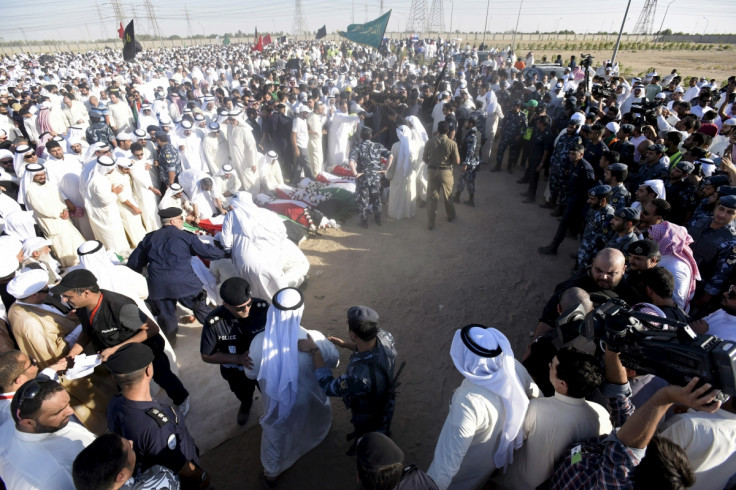Isis in Kuwait: Seven sentenced to death over Islamic State mosque suicide bombing

Seven individuals have been sentenced to death in Kuwait for their involvement in the al-Imam al-Sadeq mosque suicide bombing which left 27 dead and 220 wounded.
Kuwait's state prosecutor had sought the death penalty for 11 defendants connected to the attack by Fahd Suliman Abdul-Muhsen al-Qabaa, a Saudi national which targeted a Shi'ite mosque in Kuwait City.
Of the 29 initially indicted on charges following a crackdown by Kuwaiti authorities in the aftermath of the attack eight other suspects were handed prison sentences from two to 15 years, Reuters reported. Fourteen other defendants were acquitted.
The charges against the defendants who included Kuwaitis, Saudis, Pakistanis and stateless residents ranged from premeditated murder to possession of explosives.
Islamic State (Isis) claimed responsibility for the bloody attack, which was planned for maximum effect when the mosque was packed with worshippers during Friday prayers in the second week in Ramadan.
Kuwait declared war on the IS following the attack. Kuwait's interior ministry said the cell which carried out the bombing had considered two other targets in its preparation.

"We are in a state of war. It's a war that had been decided with this cell. But there are other cells, and we will not wait for them to try their luck with us," interior minister Sheikh Mohammad Al-Khaled Al-Sabah told parliament.
A total of 60 individuals have been detained in connection with the mosque attack and that a charity collecting money for Syria has been closed for because of its links to Islamic militants.
A Kuwaiti local paper has reported that several suspects had confessed to receiving payments from abroad to carry out the attacks.
As well as being planned for maximum carnage, the IS attack appears to have been planned to stoke tensions between Kuwait's Sunni and Shi'ite communities.
In a posthumous audio message stamped with IS's logo and posted online, al-Qabaa called Shia (Shi'ite) Muslims "enemies of God everywhere, especially in Kuwait".
© Copyright IBTimes 2025. All rights reserved.




















